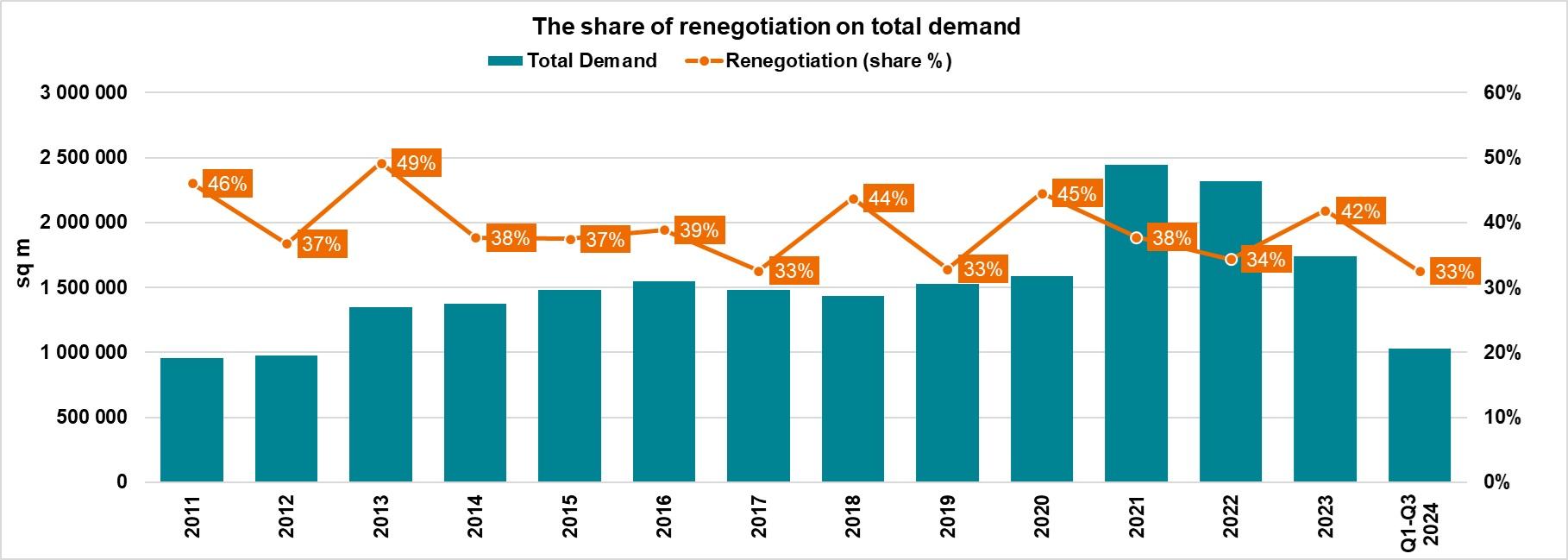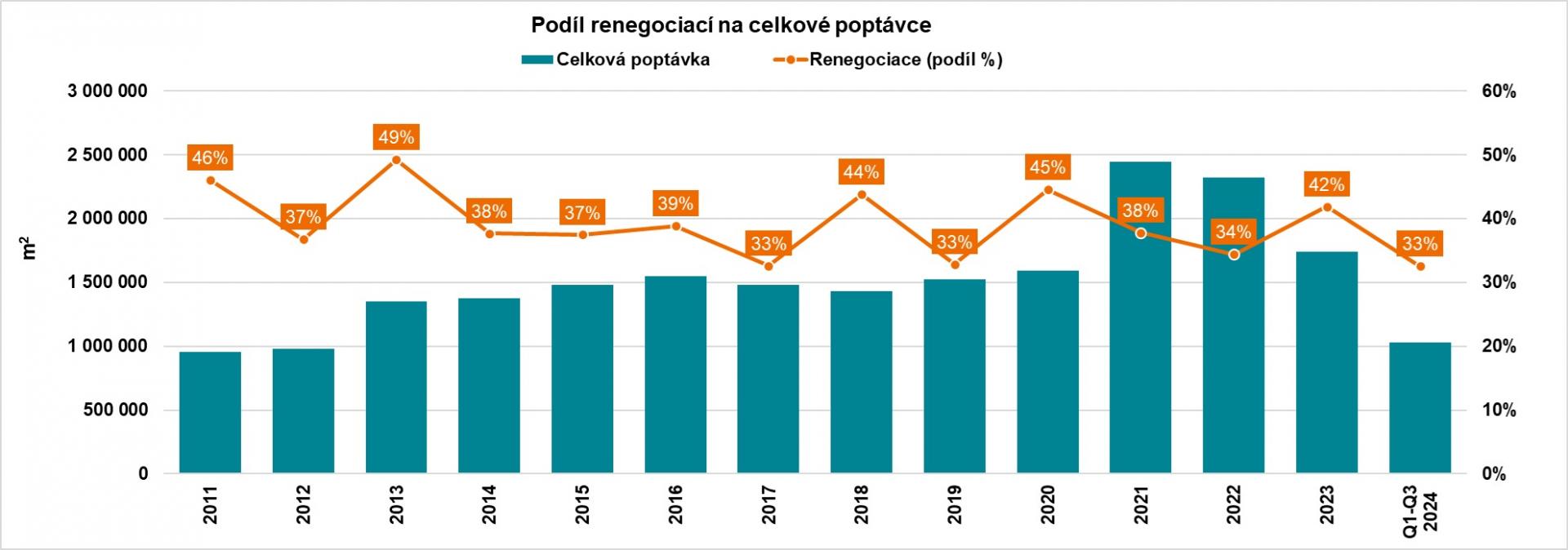Renegotiations now account for nearly 40% of industrial real estate leases in the Czech Republic
Lease renegotiations, the extension of existing lease agreements, have become a dominant force in the Czech Republic’s industrial real estate market, according to the latest analysis by Savills. Over the past decade, renegotiations have consistently accounted for at least 30% of total leasing activity, with some years seeing this figure rise above 45%. In the third quarter of 2024 alone, renegotiations represented 38% of total leasing activity, with 20 lease renewals totaling 129,100 sq m.
“The data confirms a strong trend in lease prolongations,” said Lenka Pechová, Senior Research Analyst at Savills. “For the first three quarters of 2024, renegotiations accounted for roughly one-third of gross demand, reflecting the preference of businesses to stay put and avoid the costs and complexities of relocating.”
Companies often choose to renew leases to maintain continuity in their operations, especially when there are no compelling reasons to relocate. This decision helps businesses avoid the significant expenses associated with moving and adapting new spaces to meet specific operational requirements.
“Relocating even a short distance, such as 10 kilometers, can lead to the loss of up to 40% of a company’s workforce,” explained Ondřej Míček, Head of Industrial at Savills. “A move of 20 kilometers could result in losing as much as 80% of employees, making lease renegotiation a logical choice for well-established businesses in the area.”
Savills experts recommend that businesses planning to renew leases begin discussions at least 18 months before the original lease term ends. This early engagement ensures tenants have sufficient time to evaluate alternatives, including relocation or new developments, and negotiate favorable terms.
“Renegotiation is also worth considering when entering a new lease agreement, as it allows tenants to secure an extension option in advance. However, timely planning is crucial to keep all options open,” added Míček.
The rise of renegotiations parallels the growth and evolution of the Czech industrial property market. In the late 1990s and early 2000s, renegotiations were rare, reflecting the nascent stage of modern warehouse development. As the market matured and transparency improved, lease renewals became a natural outcome of increasing leasing activity. Over the last 15 years, renegotiations have grown into a vital component of the industrial leasing landscape, often involving modifications to existing agreements, such as adjusting the size of leased spaces.
With renegotiations accounting for nearly 40% of leasing activity, they now represent a cornerstone of the industrial real estate market in the Czech Republic. As businesses continue to value stability and proximity to their workforce, this trend is expected to remain strong, further cementing the importance of strategic lease planning in a competitive market.
Source: Savills










